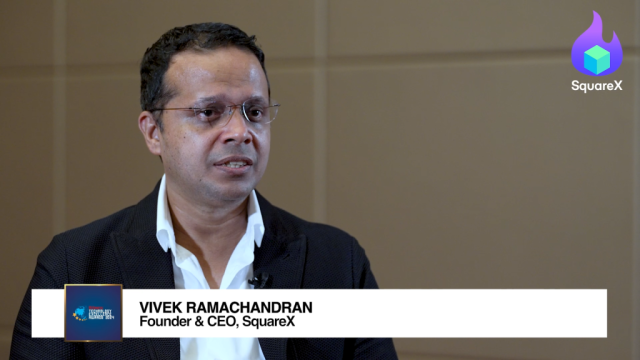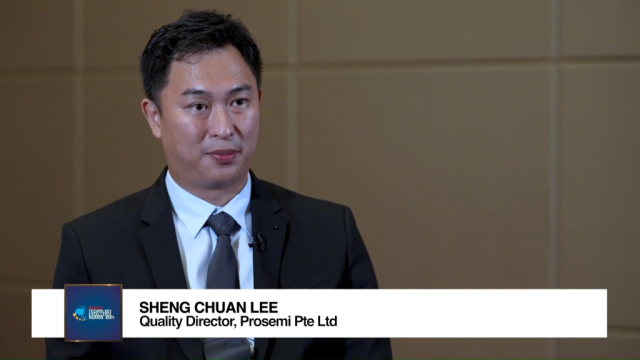Travel expenses, the new frontier for compliance
By Madanjit SinghCorporate budgets for travel and expenses (T&E) have grown exponentially over the past decade, thanks to the globalisation of trade. This growth shows no sign of abating despite sophisticated technologies from video conference and collaboration tools, as face-to-face interaction remains the preferred form of business meetings. Singapore business travellers are amongst the region’s busiest – in fact, three of the top five business travel routes in APAC originate from Singapore according to our traveller data.
Besides keeping operating costs low, having visibility and control over a growing T&E segment is an increasingly important focus for businesses, especially in the FSI (financial services industry) sector where, apart from cost monitoring, data security and compliance are important requirements in a highly regulated environment.
When it comes to managing T&E spending and compliance, for many companies a significant proportion of it is still controlled and managed by employees themselves, be it in bookings or overseas spend.
The risk therefore is that each transaction has the potential of making the business more vulnerable when it comes to compliance, an issue compounded by out-of-company bookings via third-party travel and accommodation providers, fuelled by the sharing economy and mobile apps. Around 32 percent of Singapore business travellers are likely to travel out of company policy, according to a study commissioned by the Singapore Tourism Board.
These place strains on a company’s ability to ensure compliance. One way to get around this is to have a cloud-based automated T&E system where real-time expenses data is available both to the users, as well as the management, and take the complexity out of managing expenses.
Businesses today need to focus on three key areas with regard to T&E - the first being risk and compliance.
Company T&E policies should increase compliance and decrease fraud by automatically applying spending controls and targeted audit rules to every transaction, whilst also staying compliant with industry regulations like the foreign corrupt practices act, via automated approval/review processes, spending thresholds and policy protocols. This is especially so for
financial services companies, who have a low tolerance risk for non-compliance given their highly-regulated sector.
Data security and integrity is another key area to consider, given that T&E claims often contain sensitive employee information such as credit card details and personal identities. Singapore has one of the highest financial penalties for data breaches, with up to S$1 million for non-compliance of data protection provisions. The recent SingHealth cyber breach has also highlighted the evolving threat landscape and importance of security safeguards.
Additionally, with mobile-first becoming the norm, businesses need to offer a seamless mobile experience to users with native apps from booking travel itineraries, submitting expense reimbursements, to approving invoices. Keeping the process simple and user-friendly goes a long way in ensuring employees adhere to policies and in turn ensure that companies are compliant.
However, T&E policy goes beyond a ‘plug-and-play’ approach, a challenge that not only affects Singapore businesses but also large foreign companies that operate in Singapore. Around 46 percent of multinational corporations (MNCs) have Singapore as their regional headquarters, according to KPMG’s Budget 2018/19 report. A key consideration for global businesses is a uniform travel and expense policy around the world. This is easier said than done.
Far too often large corporations with multiple subsidiaries across many countries struggle with hundreds of differing T&E policies that can be cumbersome, difficult to manage and challenging to roll-out when new subsidiaries (or acquired/merged entities) come into the picture.
An ideal T&E solution provides a framework for companies to standardise processes and reap the benefits of automation and best practices. Having a comprehensive and streamlined T&E policy applied across multiple entities allows policies to be streamlined and also provides corporations the ability to scale and implement a workflow for simplicity and increased efficiency.
For example, companies such as Mitsui & Co, amongst the world’s most diversified and largest comprehensive trading, investment, and service companies and with its regional headquarters in Singapore, is leveraging on technology to boost efficiency and compliance for its 700-plus monthly travel requests from across the region.
Moving away from a paper-based, data-entry based model, Mitsui & Co took to the cloud to overcome differing operating standards across the region and a mobile-first approach, where staff shifted to a mobile-based app that enabled them to almost halve the time it took to complete expense claims.
As businesses become global and GDPR norms and similar regulations kick in, maintaining oversight over T&E for cost and compliance becomes integral for all organisations including the government sector, public sector, as well as universities. An integrated system that brings all travel spending under one management will thus become increasingly critical for finance teams to stay on top of budget targets and control costs.

























 Advertise
Advertise









